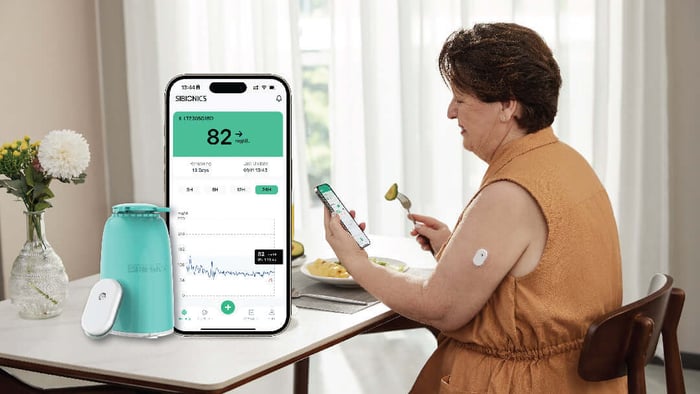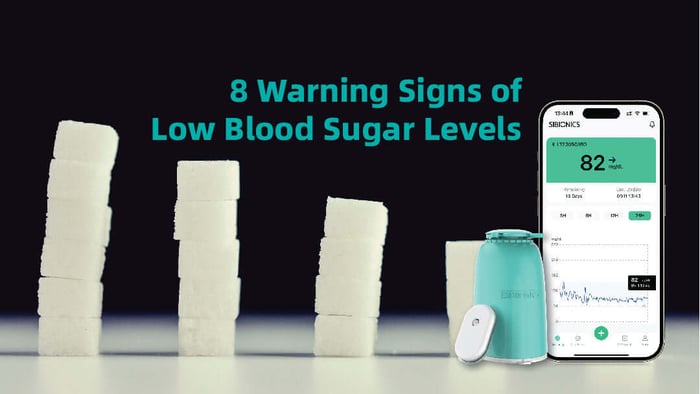High glucose levels are typically associated with diabetes, but did you know that non-diabetics can also experience spikes in their glucose levels? While it may not be as common or severe as in diabetic individuals, understanding the reasons behind elevated glucose in non-diabetics is crucial for maintaining overall health. In this blog, we'll explore some common causes of high glucose levels in non-diabetic individuals.
Overeating
Everyone's glucose will rise after a big meal due to the body digesting and utilizing carbohydrates for energy. For those without insulin resistance, levels return to normal within a couple hours. However, eating large portions or frequent, sugary snacks overwhelms the system, potentially causing high levels to linger.
Stress
When our body feels threatened by emotional or physical stress, stress hormones like cortisol and epinephrine are released to help us cope. This "fight or flight" response promotes glucose release from the liver for quick energy. In some cases, temporary spikes occur in non-diabetics due to major life events or illnesses.
Lack of Physical Activity
Regular physical activity plays a vital role in regulating glucose levels. Inactivity or a sedentary lifestyle can contribute to insulin resistance, making it more difficult for cells to absorb glucose from the bloodstream. As a result, glucose levels may remain elevated over time. Engaging in regular exercise can help improve insulin sensitivity and better control glucose levels in non-diabetics
Medications
Certain medications like steroids, diuretics, and antidepressants can raise glucose by impacting insulin secretion or cells' response to insulin. Other culprits include oral contraceptives, beta-blockers, and atypical antipsychotics. Work with your doctor to explore alternatives if possible for condition management.
Lack of Sleep
Not getting adequate, quality slumber raises cortisol levels and impairs insulin response the next day. One study found just one night of partial sleep deprivation increased post-meal glucose levels by up to 16% in non-diabetic adults. Maintaining a consistent seven to nine hours per night is ideal.
Pre-diabetes
When glucose control starts deteriorating, individuals may have "Pre-diabetes" - higher than normal levels that don't fully meet the diagnostic criteria for type 2 diabetes. Lifestyle changes are key at this stage to possibly reverse course via moderate weight loss or increased physical activity, lowering progression risk.
Are you experiencing high glucose levels?
SIBIONICS GS1 Continuous Glucose Monitoring (CGM) System is here to help you monitor glucose activities continuously, providing useful insights during your meals, exercise, and sleep. The small, waterproof sensor transmits real-time glucose readings every 5 minutes for up to 14 days continuously without the need for scanning or finger-pricking blood samples. This provides a convenient way to regularly and consistently monitor their glucose levels.
Make informed decisions, with SIBIONICS CGM
By collecting detailed monitoring data over time, users may discover if certain everyday activities like insufficient sleep, intense exercise, or hormones impact glucose levels temporarily. If minor variations are identified to potentially correlate with specific triggers, the empirical information from SIBIONICS GS1 can help facilitate further personalized discussion with a doctor about minor lifestyle adjustments as needed.
In summary, recognizing common high glucose causes while utilizing a continuous glucose monitor like the SIBIONICS CGM empowers non-diabetics to comprehensively track their glucose and identify any abnormalities early. This allows for appropriate self-care measures to be taken to maintain an optimal glucose range and potentially lower the long-term risk of developing diabetes.
FAQs:
Q: What are considered high glucose levels in non-diabetics?
A: A fasting glucose level over 100 mg/dL or a 2-hour post-meal level over 140 mg/dL is considered high. Consistently elevated levels could signify prediabetes or the need for further investigation.
Q: How long do post-meal spikes in glucose last?
A: Post-meal spikes in glucose usually peak around 1-2 hours after eating and return to baseline within 3-4 hours in healthy individuals. However, this timing can vary based on factors such as the composition of the meal and individual metabolism.
Q: Does coffee affect glucose?
A: Black coffee alone does not significantly affect glucose levels. However, coffee with sugar and creamers can spike levels due to the added carbohydrates and calories. For best control, it's recommended to drink coffee black or with a splash of milk.
Q: Does fasting increase glucose?
A: Short-term fasting for 8-16 hours does not cause hyperglycemia for most healthy individuals. But very low-calorie diets or prolonged fasting over 24 hours without electrolyte/nutrient support can elevate levels due to stress-related hormone changes and gluconeogenesis in the liver. It's important to monitor glucose levels closely during fasting periods, especially for those with pre-existing conditions.
Q: What is a 180 mg/dL glucose level conversion?
A: A glucose level of 180 mg/dL (milligrams per deciliter) is approximately equivalent to 10 mmol/L (millimoles per liter).






